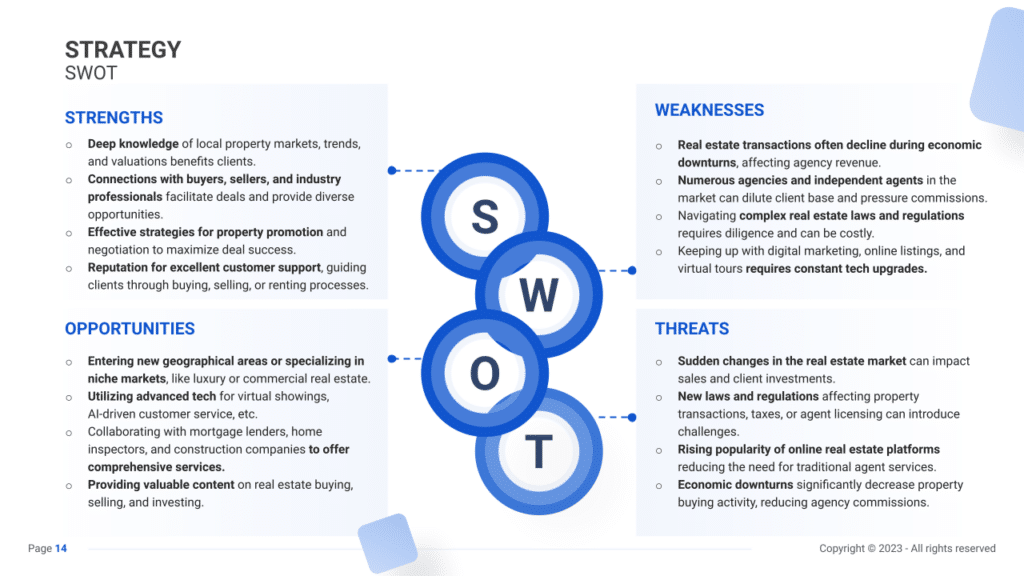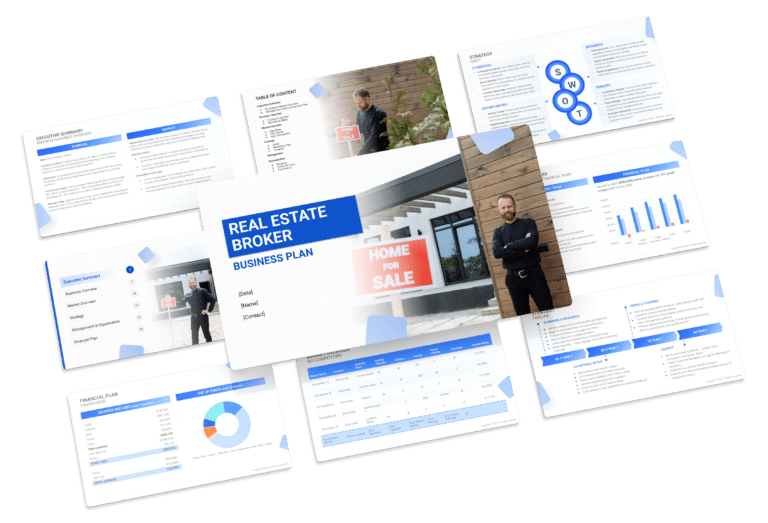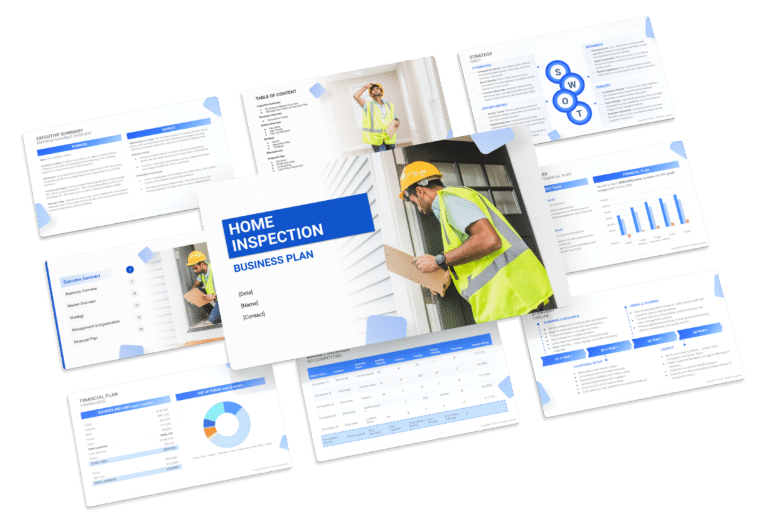How to Prepare a SWOT for a Real Estate Agency

Essential for crafting a comprehensive business plan for a real estate agency is the SWOT analysis. SWOT (Strengths, Weaknesses, Opportunities, and Threats) acts as a strategic compass, allowing agency owners to scrutinize internal strengths and weaknesses while considering external opportunities and threats.
Incorporating a SWOT analysis into the business plan sheds light on the agency’s market standing, revealing potential avenues for growth and optimization. This includes maximizing a skilled team, employing innovative marketing strategies, and addressing weaknesses such as limited property listings.
This article will delve into diverse examples of strengths and weaknesses specific to real estate agencies, providing invaluable insights for seamlessly integrating them into a robust business plan.

Strengths
Discover the inherent strengths that position Real Estate Agency Services as pillars of success in the dynamic real estate market.
- Expertise and Industry Knowledge: Real estate agents possess specialized knowledge, enabling them to provide clients with valuable insights and navigate complex transactions.
- Example: Offering niche expertise in luxury properties or specific neighborhoods enhances the agency’s credibility and attracts clients seeking specialized services.
- Established Network and Relationships: Successful real estate agencies have a well-established network of industry connections, including mortgage brokers, inspectors, and legal professionals.
- Example: Leveraging an extensive network ensures smooth transactions and can lead to exclusive property listings, giving the agency a competitive edge.
- Effective Marketing Strategies: The ability to craft and execute effective marketing strategies helps real estate agencies showcase properties and attract potential buyers or tenants.
- Example: Utilizing digital marketing channels, such as social media and targeted online advertising, maximizes property exposure and generates leads.
- Local Market Insights: Real estate agents possess valuable local market insights, enabling them to advise clients on property values, neighborhood trends, and investment opportunities.
- Example: Regularly providing clients with market reports and trend analyses demonstrates the agency’s commitment to keeping clients informed and making informed decisions.
Weaknesses
Identifying weaknesses is essential for real estate agencies to address challenges and continually improve their services.
- Dependency on Market Conditions: Real estate agencies are highly dependent on market conditions, and economic downturns can impact property demand and sales.
- Example: Diversifying services, such as property management or rental assistance, can provide a steady income stream during market fluctuations.
- Intensive Competition: The real estate sector is highly competitive, and agencies may struggle to differentiate themselves from numerous competitors.
- Example: Developing a unique selling proposition, such as specialized expertise in a particular property type or market segment, distinguishes the agency in a crowded field.
- Reliance on Commission-Based Model: The commission-based model can create income variability and financial instability during periods of slow sales.
- Example: Exploring alternative revenue streams, such as consulting services or educational workshops, helps offset potential income fluctuations.
- Vulnerability to Economic Trends: Economic uncertainties and interest rate fluctuations can impact homebuyers’ purchasing power and overall market stability.
- Example: Offering flexible financing options or collaborating with mortgage brokers to secure favorable rates can mitigate the impact of economic uncertainties.
Opportunities
Identifying and capitalizing on opportunities positions real estate agencies for sustained success in a dynamic market.
- Digital Transformation: Embracing technological advancements, such as virtual tours and online platforms, enhances property marketing and client engagement.
- Example: Investing in virtual reality property tours or utilizing advanced CRM systems improves the agency’s digital presence and attracts tech-savvy clients.
- Specialized Niche Markets: Identifying and catering to specialized niche markets, such as eco-friendly properties or smart homes, taps into emerging trends.
- Example: Developing expertise in sustainable properties or energy-efficient homes positions the agency as a go-to resource for environmentally conscious clients.
- Global Expansion Opportunities: Expanding services to international markets or collaborating with global real estate networks opens avenues for increased business.
- Example: Forming partnerships with international real estate agencies or offering multilingual services attracts a diverse clientele and broadens the agency’s reach.
- Strategic Partnerships: Collaborating with complementary businesses, such as home staging companies or interior designers, enhances service offerings.
- Example: Establishing partnerships with local businesses provides additional value to clients and creates a holistic approach to property transactions.
Threats
Anticipating and mitigating threats is vital for real estate agencies to sustain success and adapt to changing market conditions.
- Legal and Regulatory Changes: Evolving housing regulations and legal requirements may pose challenges and require adjustments to business practices.
- Example: Staying abreast of legislative changes, conducting regular compliance audits, and seeking legal counsel ensure adherence to updated regulations.
- Economic Downturns and Recessions: Economic downturns can impact housing demand, leading to reduced property transactions and commission income.
- Example: Implementing cost-effective marketing strategies during economic downturns or offering incentives, such as reduced commission rates, can maintain client engagement.
- Technological Disruptions: Rapid technological advancements may render certain traditional real estate practices obsolete.
- Example: Embracing proptech innovations, such as blockchain for secure transactions or AI for predictive analytics, ensures the agency remains at the forefront of industry trends.
- Changing Consumer Preferences: Shifts in consumer preferences, such as a preference for online transactions, may require real estate agencies to adapt their service delivery.
- Example: Integrating online platforms for property transactions and enhancing digital communication channels caters to the evolving preferences of modern consumers.





